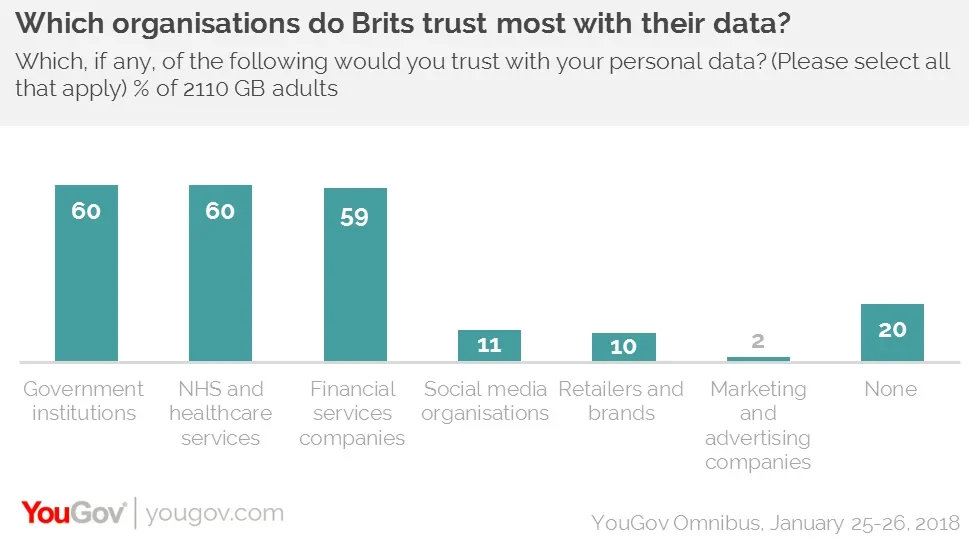In light of the forthcoming GDPR regulations, YouGov explores consumers’ attitudes towards the new rules and data privacy more generally
From 25th May 2018, the General Data Protection Regulation (GDPR) will increase data protection rights for all individuals within the EU.
Although the regulations were announced two years ago, YouGov’s Omnibus research shows that almost three quarters (72%) of British adults haven’t heard of GDPR. However, two in five (40%) have seen something in the media about “changes around rights individuals have with respect to their personal data”.
For context about how this level of awareness compares to other notable announcements, almost eight in ten (79%) have seen something about the “sugar tax”, while 57% have heard about changes to the state pension age.
The public’s attitudes to data privacy in general
Yet this lack of knowledge does not mean that consumers are not concerned about their privacy. Instead, it seems they are resigned to the issue being out of their control.
More than half (55%) think that people are so used to giving away their personal data and information that reversing that trend would be almost impossible, and 58% believe that they feel they have no choice but to hand over personal data in return for products and services. When it comes to specific examples of sharing personal information, almost all respondents (96%) either don’t read all website terms and conditions, privacy policies or cookie consents, or only read some of them.
However, consumers are wary of giving away too much about themselves. Eight in ten (80%) try to limit the amount of personal information they either put online or share with companies, and an even larger proportion (85%) state that they would boycott a company that repeatedly showed disregard for protecting consumer data.
Which organisations do people most trust with their data?
When it comes to trusting companies to keep data safe, the only organisations that are trusted by more than half of the population are government authorities (60%), the NHS and private healthcare providers (60%), and banks (59%).
The public has notably less trust in most other types of organisations we asked about. Only one in nine (11%) trust social media companies, while one in ten (10%) trust retailers and consumer brands. Just 2% trust marketing and advertising companies with their personal details.

A fifth (20%) of Brits don’t trust any of these organisations and there are no doubt a variety of reasons for this. Our research highlights a couple, showing that a majority (61%) of the public are aware of at least one data breach suffered by a brand while two thirds (66%) state that if they know a company has mishandled data they are less likely to use their products or services. What’s more, almost three quarters (74%) of people surveyed said they would blame the company or institution itself for a data breach rather than the perpetrator of the hacking or online attack.
Such high levels of awareness about data breaches may also explain why people are reluctant for companies to know too much about them. When asked if they would be happy to exchange personal information – such as web browsing history and location data – in return for more personalised content or advertising, only 1% said they would be very willing and 79% said they would not be willing at all.










